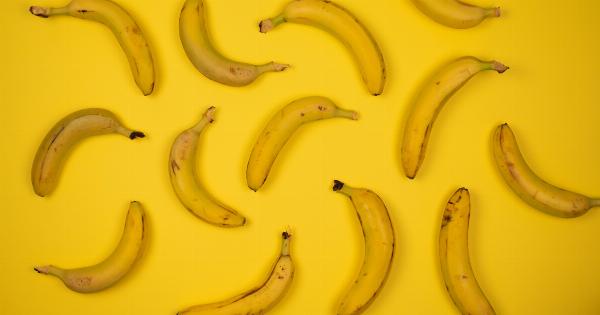Fasting is a spiritual practice observed by various religious groups around the world. It involves abstaining from specific foods or activities for a designated period of time.
One such significant period of fasting is the Great Lent, observed by Orthodox Christians.
The Significance of Great Lent
The Great Lent is a period of profound reflection and preparation leading up to Easter, the most important Christian holiday. It lasts for 40 days, symbolizing the 40 days Jesus spent fasting in the desert.
During this time, Orthodox Christians abstain from consuming animal products, including meat, dairy, eggs, and fish, as well as oil and wine.
The purpose of this fasting is to cleanse the body and soul, and to focus on spiritual growth, prayer, repentance, and acts of charity.
Fasting Made Easy with Prolepsis Institute
For those embarking on the Great Lent journey, stocking up on fasting-friendly foods is essential. To help with this, the Prolepsis Institute, a renowned organization devoted to promoting healthy living and nutrition, offers valuable advice and tips.
The Prolepsis Institute recommends individuals to focus on plant-based foods, such as fruits, vegetables, legumes, whole grains, and nuts. These food groups provide essential nutrients while ensuring compliance with the fasting guidelines.
Additionally, the Institute suggests exploring alternative sources of protein, as meat and dairy products are excluded during the Great Lent.
Legumes, such as beans, lentils, and chickpeas, along with tofu and tempeh, offer excellent protein sources to sustain the body throughout the fasting period.
Emphasizing the importance of balanced nutrition, the Institute encourages individuals to include a variety of colorful fruits and vegetables in their meals.
These provide essential vitamins, minerals, and antioxidants necessary for maintaining good health.
Making the Most of Whole Grains
Whole grains serve as a vital component of a healthy fasting diet.
Incorporating grains like quinoa, brown rice, whole wheat bread, and oats into daily meals can provide necessary carbohydrates, fiber, and energy to sustain individuals during the Lenten period.
The Prolepsis Institute advises individuals to diversify their whole grain choices, ensuring they obtain a range of nutrients.
Experimenting with ancient grains, such as amaranth, teff, and spelt, can be an exciting way to introduce variety and nutritional richness to the fasting menu.
Healthy Snack Options
Snacking can be a challenge during fasting, as many common snack items are typically non-compliant with the Lenten guidelines. However, the Prolepsis Institute suggests some delicious and nutritious snack options that individuals can have on hand.
Vegetable sticks with hummus or guacamole make for a satisfying and healthy snack. Nuts and seeds, such as almonds, walnuts, sunflower seeds, or pumpkin seeds, can also provide a good source of healthy fats and protein.
Other snack ideas include air-popped popcorn, dried fruits without added sugars, and homemade energy bars made with ingredients like dates, oats, and nuts.
Beverage Alternatives
When it comes to beverages, water is always the best choice for staying hydrated. However, the Prolepsis Institute acknowledges that individuals may desire some variety during the fasting period.
Herbal teas, infused water with fresh fruits or herbs, and homemade vegetable-based broths can offer flavorful alternatives to plain water. These options not only provide hydration but also add some excitement to the fasting menu.
Easy Lenten Meal Ideas
The Prolepsis Institute understands that meal planning can be challenging during the Great Lent. To simplify the process, they suggest a few easy and delicious meal ideas that comply with the fasting guidelines.
One option is a Greek-style salad, made with fresh vegetables, olives, and olive oil dressing. Serving it with some toasted whole grain bread can make it more filling and satisfying.
Lentil or vegetable soups, along with a side of cooked whole grains, are also great choices for a nutritious and fasting-friendly meal.
For those looking for a heartier option, chickpea or black bean burgers served on whole grain buns with a side of mixed greens can be both delicious and satisfying.
These plant-based burgers are packed with protein and fiber, making them ideal for those observing the Lenten fast.
Why Fasting Matters
Beyond the dietary restrictions and specific foods, the Great Lent is ultimately a period of spiritual growth and self-reflection.
It provides individuals with an opportunity to reevaluate their priorities, focus on their relationship with God, and practice self-discipline.
Fasting is not only about eliminating certain foods but also about cultivating virtues such as humility, compassion, and self-control. It serves as a reminder of the importance of nourishing not only our bodies but also our souls.
Conclusion
The Prolepsis Institute offers invaluable guidance for stocking up on fasting foods during the Great Lent.
By emphasizing plant-based nutrition, incorporating whole grains, and exploring alternative protein sources, individuals can ensure a wholesome and nourishing fasting experience.
With their advice, individuals can confidently approach the Great Lent, embracing the spiritual journey while promoting their overall health and well-being.































